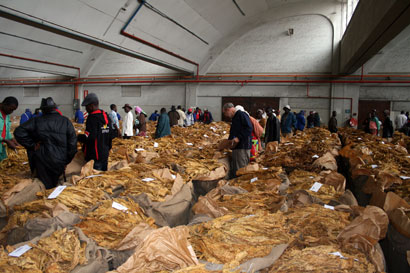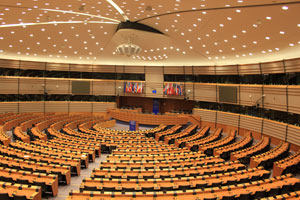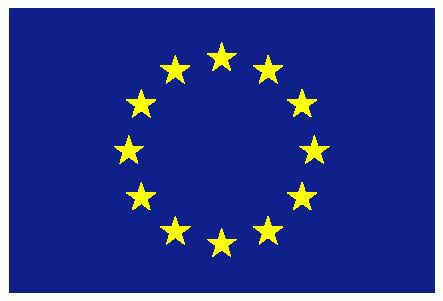Hurricane Florence is testing the resolve of farmers in the US states of North and South Carolina, who could face billions of dollars in agricultural damage while still feeling the sting from Hurricane Matthew almost two years ago, according to a story by Gary D. Robertson and Emery P. Dalesio for Associated Press.
Writing on Friday, the AP reporters said that after ‘last weekend’s’ high winds and rain that was followed by ‘this week’s’ rising rivers and standing water in fields, early farm reports were confirming pre-storm worries about losses to tobacco, cotton and corn crops.
Matthew hurt eastern North Carolina farmers in 2016, but that storm arrived in October, after most field crops had been harvested.
With Florence, most major crop harvests were still underway or just getting started. “This hurricane couldn’t have come at a worse time,” North Carolina Farm Bureau president, Larry Wooten, was quoted as saying.
North Carolina is unlikely to have preliminary crop damage estimates until the end of the next week, said state agriculture commissioner Steve Troxler. Floodwaters and blocked country roads were making it difficult for agency agronomists to check out farms.
Five of North Carolina’s top six farming counties are within the hardest-hit areas in the eastern part of the state.
“I think it’s easily going to be in the billions of dollars,” Troxler said in an interview, calling the damage “catastrophic” and “unbelievable”.
Category: People

Still counting the cost

Government urged to act
The Hong Kong-based consumer advocate factasia.org is urging the Government to allow the sale of regulated vaping products. It says that consumers have the right to choose what they buy and use, according to a story at harbourtimes.com.
Factasia backed its call on Tuesday with the results of a survey conducted by market researcher Ipsos. The survey showed that out of 1,000 smoking and non-smoking participants in Hong Kong, 65 percent said there should be tax and regulatory policies to help people switch from combustible cigarettes to alternative products, while ensuring those products were kept away from the young people.
Vaping devices seem to occupy a gray regulatory area in Hong Kong where the Government is considering its position in respect of these devices.
Heneage Mitchell, co-founder of Factasia, was quoted as saying that alternative products were less harmful than were combustible cigarettes.
“It should be a personal choice for people to use these products to improve their quality of life,” he said. “These products mimic smoking without causing the harmful effects.”
The survey found also that 60 percent of participants believed that if the consumption of a new product were scientifically proven to be potential less risky than smoking, adult smokers should have the right to access this information.
A Swiss solution
Swiss producers of electronic cigarettes and several retail outlets that sell such products have agreed to a voluntary ban on their sale to minors until a law-change comes into effect, according to a story at swissinfo.ch.
The code of conduct produced by the consortium of tobacco manufacturers and large retailers will go into force on October 1.
About 38 companies had previously signed up to an earlier charter initiated by the Swiss Vape Trade Association, which also seeks to prevent minors obtaining such products.
The signatories of the latest agreement have undertaken not to sell any e-cigarette devices or liquids that can be vaporised to persons under the age of 18.
The Federal Food Safety and Veterinary Office welcomed the decision, saying it would better safeguard the health of youngsters.
In April, Switzerland’s Federal Administrative Court overturned a ban on sales of electronic cigarettes with nicotine. The court accepted the argument that such products are freely sold in the EU.
Currently, e-cigarettes containing nicotine are considered a commodity under Swiss law and are not included within restrictions on conventional cigarettes. However, pending new laws would include e-cigarettes under a list of tobacco products that should not be sold or marketed to under-18s.
Pests determine prices
Tobacco growers in Zimbabwe have started transplanting tobacco seedlings to fields under irrigation, according to a story in The Herald.
Midlands Provincial crop and livestock officer Madeliner Magwenzi said growers with irrigation facilities, mainly in the Gweru and Kwekwe districts, had undergone thorough training by Agritex and various tobacco training institutions, including the Tobacco Industry Marketing Board and the Tobacco Research Board to improve their agronomic practices.
“Irrigation tobacco is now being transplanted and we are urging tobacco growers to apply systemic aphicides and nematicides during the transplanting stage of tobacco to avoid the spread of insect transmitted diseases,’ she was reported as saying.
Magwenzi added that growers were being trained in integrated pest management because the anticipated El Nino weather conditions could be associated with more and early pests and diseases.
Tobacco farmers needed to be wary of pests while they were transplanting because the application of the wrong pesticides could lead to pest resistance, pest resurgence and environmental pollution.
Magwenzi said that the training bodies would continue to educate growers on pest management because such management affected yields and quality, and ultimately profit margins.
The Midlands Province is aiming to plant 500 ha under irrigated tobacco this season.
A question of poisoning
An Italian member of the EU Parliament has asked the Commission what steps it is taking to reduce the risk of tobacco poisoning among tobacco farmers and their families.
In a preamble to her questions, Barbara Matera said that when the proper safety procedures were not adhered to, the risk of tobacco poisoning among farmers was high.
‘Zimbabwe, in particular, has experienced a large number of tobacco poisoning cases, which can be attributed to a lack of education about the condition and a lack of funding for the proper preventive equipment,’ she said.
‘This sickness also greatly affects children who help out with the harvest in rural areas.’
Matera said tobacco was Zimbabwe’s largest export product, and its largest agri-food export to the EU, before asking:
‘What is the Commission doing to promote education among tobacco exporters?’
‘What can the Commission do to provide adequate equipment and protection for farmers, especially those with children?’
The Commission is due to answer in writing.
Cannabis growing
The Constitutional Court of South Africa on Monday upheld a ruling by the Western Cape High Court decriminalizing the cultivation and possession of cannabis by adults in a private place for personal private consumption, according to a story by The Associated Press relayed by the TMA.
The Constitutional Court said the right to privacy extended beyond the boundaries of a home.
Gareth Prince, leader of the Dagga Party, had filed a lawsuit challenging the High Court ruling saying that cannabis laws as they currently stood violated equality laws. Prince believes that cannabis should be regulated in the same way as alcohol and tobacco products are regulated.
The government, however, had said cannabis was harmful and should be considered illegal.
The court said it would be up to a police officer to decide if the amount of marijuana in someone’s possession was for personal consumption or dealing.
Durante to retire
British American Tobacco’s CEO Nicandro Durante (pictured) is to retire next year.
In a note posted on its website, the company said that Durante, who had been with the company for 37 years, eight as CEO, had told its board that he intended to retire on April 1.
Richard Burrows, chairman of BAT, described Durante as an outstanding chief executive.
‘He was the architect of the current strategy to transform the business and, with the successful establishment of BAT’s potentially reduced-risk products business and the acquisition of Reynolds American Inc., he has created a stronger, truly global tobacco and nicotine business,’ Burrows said. ‘Through this period of great change, Nicandro has substantially grown the business, delivering consistent strong growth in both earnings and dividends during his tenure.’
Durante said it had been a privilege to have led ‘such a great company’ for the past eight years. ‘We now have a growing potentially reduced-risk product business fully embedded in our organisation and the integration of Reynolds has been successfully completed.’
The note said that the board had identified a lead candidate to succeed Durante and that the company would make a statement ‘in due course’.
Vaping evidence highlighted
An Irish member of the EU Parliament has asked the Commission whether it will be taking account of the contents of a UK parliamentary report and a letter signed by four academics – both of which come out in favor of vaping – when the Commission produces its implementation report on the Tobacco Products Directive.
In a preamble to his questions, Luke Ming Flanagan thanked the Commission for its answer to his previous question on vaping and the Tobacco Products Directive (E-002293/2018).
Flanagan then asked, with reference to the Commission’s statement that it continuously monitored developments, whether it was aware of the recent all-party UK House of Commons Science and Technology Committee report that was published on August 17 and that came out strongly in favor of vaping.
He asked also; was the Commission aware of the submission to the World Health Organization of a letter signed by four top academics, again outlining, in great detail, the case in favor of vaping.
And he asked whether the Commission could confirm that it would now take those reports into consideration in the implementation report it was required to submit in 2021, in line with Article 28(1) of the directive.
The Commission is due to reply in writing.
Ancient rules invoked
Barnsley Council has been warned by lawyers that its plan to ban the sale of smoking goods in its new market complex is ‘legally defective’ and ‘unlawful’, according to a story in the Barnsley Chronicle.
The Council is said to stand accused of interfering with ancient rights.
Barnsley Council had intended to stop the sale of smoking-related goods in the market when traders moved in later this year, but the authority has been accused of overriding centuries-old rules covering markets.
Barnsley was granted its markets charter in 1249.
Solicitors acting for traders have written to the council warning that its plans to stop existing market traders from continuing to sell smoking-related goods when the new premises open later this year conflict with rights which, they say, allow both traders and customers to buy and sell goods in the market.
They have given details of a legal case from 1974 when a trader successfully challenged a decision to exclude him from the market and say ‘similar principles arise’.
The law firm Bury and Walker was quoted as saying: ‘The Court of Appeal previously held that the council had acted unlawfully because they had overstepped their powers; as again their actions interfered with the same ancient rights’.
Barnsley Council is due to respond to the letter shortly.
Smuggling snus
Eight people are alleged to have smuggled more than 12 tonnes of snus from Sweden to Finland between 2016 and 2018, according to a story in The Local Europe quoting the Finnish customs authority.
Snus has been banned from sale in the EU since 1992, apart from in Sweden, which negotiated an exemption to the ban when it joined the union in 1995.
The main suspect is said to be a Finnish man in his 50s who lives across the border at Haparanda, Sweden. while a younger person, also residing in Sweden, is alleged to have helped him.
The other suspects live near the Finnish capital and in Kajanaland, eastern Finland.
All eight are accused of smuggling and aggravated tax fraud.
Bringing small amounts of snus into Finland for personal consumption is allowed.
But according to prosecutors, the snus in question – in total 12,700 kg – was bought in Swedish stores and transported in several cars to customers in the Kemi-Torneå area of Finland and then distributed further south in the country.
The alleged smuggling ring was caught when customs officers stopped a van carrying 175 kg of snus in Finland in April this year.
The case is due to go before a Lapland court later this autumn.










